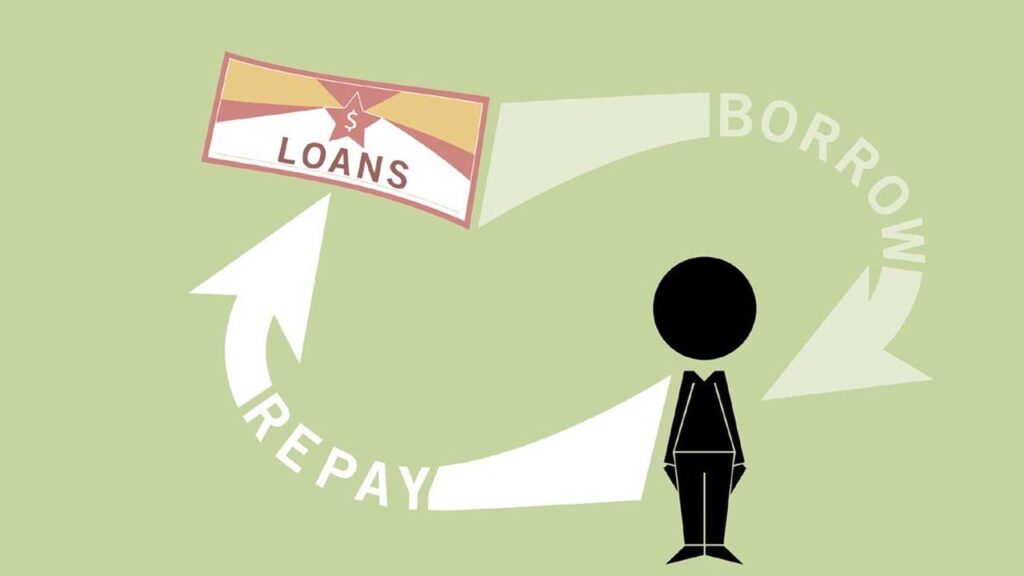SGDLoan.com – Securing a loan for commercial purposes is essential for business owners in Singapore who are looking to finance their operations, expansions, or projects.
Whether you’re starting a new business or scaling up an existing one, understanding the loan options available is crucial.
This guide explores the various types of commercial loans in Singapore, outlines the eligibility criteria, and explains the application process in detail.
Understanding Commercial Loans

Commercial loans are financial products designed specifically for business purposes.
These loans are primarily used to fund operations, support expansion, purchase equipment, or manage cash flow.
Unlike personal loans, which are meant for individual needs, commercial loans are tailored to meet the unique requirements of businesses.
They come in various forms, each with its own set of features to meet different business needs.
Types of Commercial Loans
Here are the main types of commercial loans available for businesses in Singapore:
- Term Loans: These are fixed loans that provide a lump sum amount, which the business repays over a set period. They often come with fixed interest rates, making them predictable for budgeting. Term loans are typically used for business expansion, purchasing equipment, or other long-term investments.
- Lines of Credit: A line of credit offers flexibility for businesses to borrow up to a certain limit. Unlike term loans, businesses only pay interest on the amount borrowed, not the full credit limit. This flexibility is ideal for businesses that face fluctuating cash flow or need quick access to funds.
- Invoice Financing: This type of loan is based on the value of your unpaid invoices. It allows businesses to access funding immediately instead of waiting for clients to pay. Invoice financing can be an excellent option for businesses that need to improve cash flow without taking on too much debt.
- Merchant Cash Advances: A merchant cash advance (MCA) provides funding based on a business’s future credit card sales. This can be beneficial for businesses with a high volume of credit card transactions but less stable revenue. MCA offers quick access to capital, but the repayment terms tend to be more expensive than traditional loans.
Key Lenders in Singapore Offering Commercial Loans

Several banks and financial institutions in Singapore provide commercial loans tailored to meet the diverse needs of businesses. Here’s a closer look at some of the key lenders:
- DBS Bank: DBS offers financing for commercial properties with up to 90% loan-to-value (LTV). They provide flexible repayment options, which makes them a popular choice for businesses looking to finance their expansion.
- OCBC Bank: OCBC provides commercial loans with a loan amount of up to S$5 million and a tenure of up to 30 years. Their loans are designed for businesses of various sizes, including small and medium-sized enterprises (SMEs).
- Maybank Singapore: Maybank offers financing with interest rates tied to the Singapore Overnight Rate Average (SORA). This transparency in interest rates can help businesses plan their finances more effectively.
- United Overseas Bank (UOB): UOB provides commercial loans that can go up to 30 years. Their flexible loan terms make them a great option for businesses that require both large amounts of capital and longer repayment periods.
- CIMB Singapore: CIMB offers competitive interest rates and a high margin of financing. This makes them a strong contender for businesses seeking efficient and quick financing options.
Eligibility Criteria for Commercial Loans

Each lender in Singapore has specific requirements for commercial loans. However, most lenders share common eligibility criteria that businesses must meet.
Here are the general guidelines:
- Business Requirements: Typically, lenders require businesses to have been operational for at least 2 years. The business must also demonstrate a positive cash flow and profitability. Lenders will assess the financial stability of the business to ensure it can handle loan repayments.
- Property Requirements: If the loan is secured by property, such as a commercial real estate loan, the property must meet certain conditions. These include a minimum leasehold period (usually 5–10 years remaining) and considerations of the property’s type and location.
Application Process

Applying for a commercial loan involves several steps. While the process might vary slightly depending on the lender, the general steps are as follows:
- Research and Select a Lender: Begin by researching different financial institutions that offer commercial loans. Compare interest rates, repayment terms, and loan amounts to identify the best fit for your business’s needs.
- Prepare and Submit Documentation: Lenders typically require documentation such as:
- Financial statements from the last 2 years
- Bank statements from the past 3 months
- Business registration documents
- Approval and Disbursement: Once the application is submitted, the lender will review your financial health and determine whether to approve the loan. After approval, the loan will be disbursed, and you can begin using the funds for your commercial purposes.
Government Schemes Supporting Commercial Loans

In addition to traditional bank loans, the Singapore government offers various schemes that provide favorable terms for businesses seeking financing.
These government-backed schemes can be an excellent option for SMEs, startups, or businesses facing financial challenges.
- Enterprise Financing Scheme – SME Working Capital Loan: This scheme provides loans of up to S$500,000 with a risk-share of up to 70% from Enterprise Singapore. It is designed to help SMEs with their working capital needs.
- Temporary Bridging Loan Programme: This short-term loan programme was introduced to support businesses impacted by economic disruptions. The government backs a significant portion of the loan, reducing the risk for lenders and providing businesses with a quick cash injection.
Factors to Consider Before Applying
Before applying for a loan for commercial purposes, it is essential to consider several factors that will impact your business in the long run.
- Interest Rates: Interest rates play a significant role in the cost of borrowing. Businesses should compare fixed and variable rates to determine which option is best for their financial situation.
- Repayment Terms: The length of the loan and the repayment schedule will influence your monthly cash flow. Make sure the repayment terms are manageable and suit your business’s financial cycle.
- Fees and Charges: Some loans may have processing fees, early repayment penalties, or late payment charges. It’s crucial to read the fine print and ensure you’re aware of any extra charges.
- Loan-to-Value (LTV) Ratio: The LTV ratio determines the amount you can borrow relative to the value of the collateral. A higher LTV ratio means you may be able to borrow more, but it also increases the lender’s risk, which could result in higher interest rates.
Alternative Financing Options
For businesses that may not qualify for a traditional commercial loan, alternative financing options provide flexibility.
- Revenue-Based Financing: This type of financing allows businesses to borrow based on a percentage of their monthly revenue. It’s an excellent option for businesses with fluctuating income, as repayments adjust with revenue.
- Peer-to-Peer Lending: Platforms like Funding Societies connect businesses with individual investors. This method can be faster than traditional bank loans and may be a good fit for startups or small businesses.
Securing a loan for commercial purposes in Singapore can provide your business with the financial support it needs to grow and succeed. By understanding the various loan options, eligibility criteria, and application process, you can make an informed decision.
With the right financing, you can invest in your business’s future and achieve your goals. Whether you need to purchase equipment, expand your operations, or manage cash flow, a commercial loan could be the solution you’re looking for.









